|
The Entring Clerk's Vade Mecum (1678)
William Brown (fl. 1671–1705), a clerk of the Court of Common Pleas, wrote numerous functional manuals for clerks and public officials. In The Entring Clerk's Vade Mecum, Brown presents a collection of precedents, "disposing them by way of reference to, and dependence upon one another." In the author's view, few contemporary manuals could match the "choice and variety" of this work. A second edition was published in 1695. This copy features the signatures of several previous owners on the endleaves and title page.
|
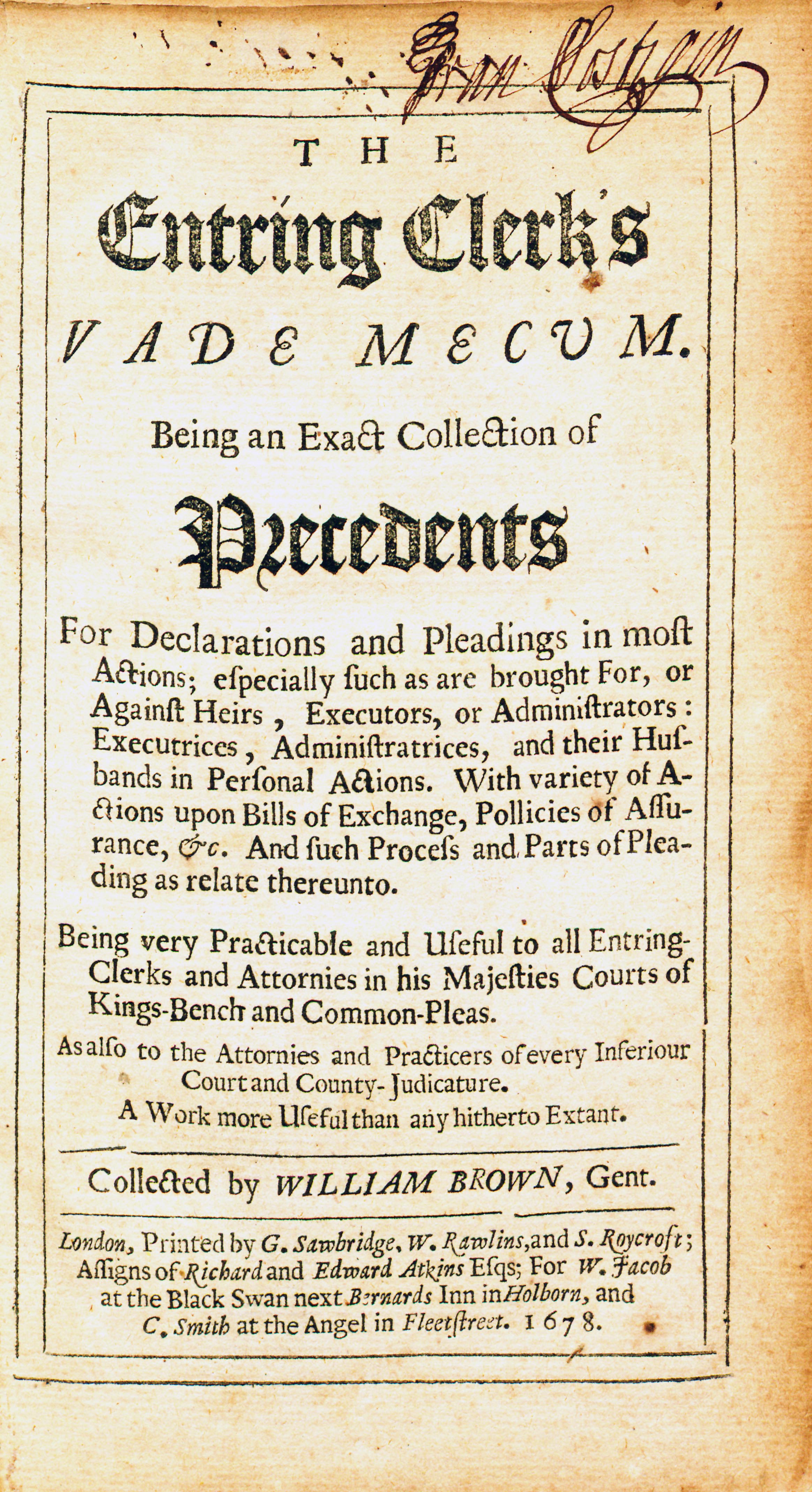
|
Brown, William. The Entring Clerk's Vade Mecum: Being an Exact Collection of Precedents. 1st ed. London: Printed by G. Sawbridge; W. Rawlins, and S. Roycroft, Assigns of Richard and Edward Atkins, for W. Jacobs, 1678.
|
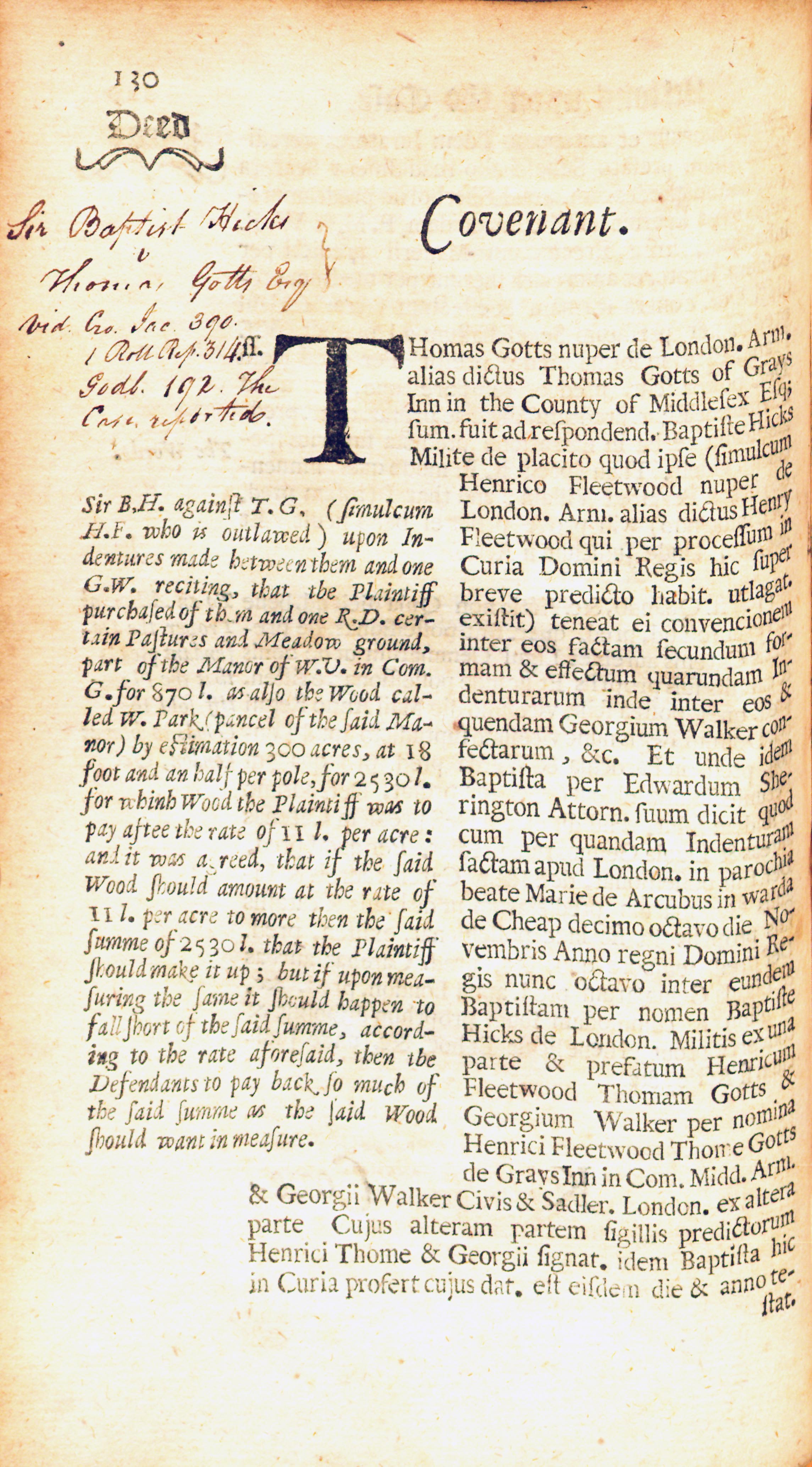
|
"Sir Baptist Hicks v. Thomas Gotts Esq." Marginalia, page 130 of William Brown, The Entring Clerk's Vade Mecum, 1678.
|
|
|
A Perfect Guide for a Studious Young Lawyer (1658)
Originally published in 1654, this little manual compiles precedents from several previous authors including Sir Edward Coke (1552–1634) and Sir Francis Bacon (1561–1626). Little is known of the author other than what he indicates on the title page: he claims membership in Furnival's Inn, one of the Inns of Chancery, and had worked on his manuscript for thirty years. Only two editions of The Perfect Guide were published.
|
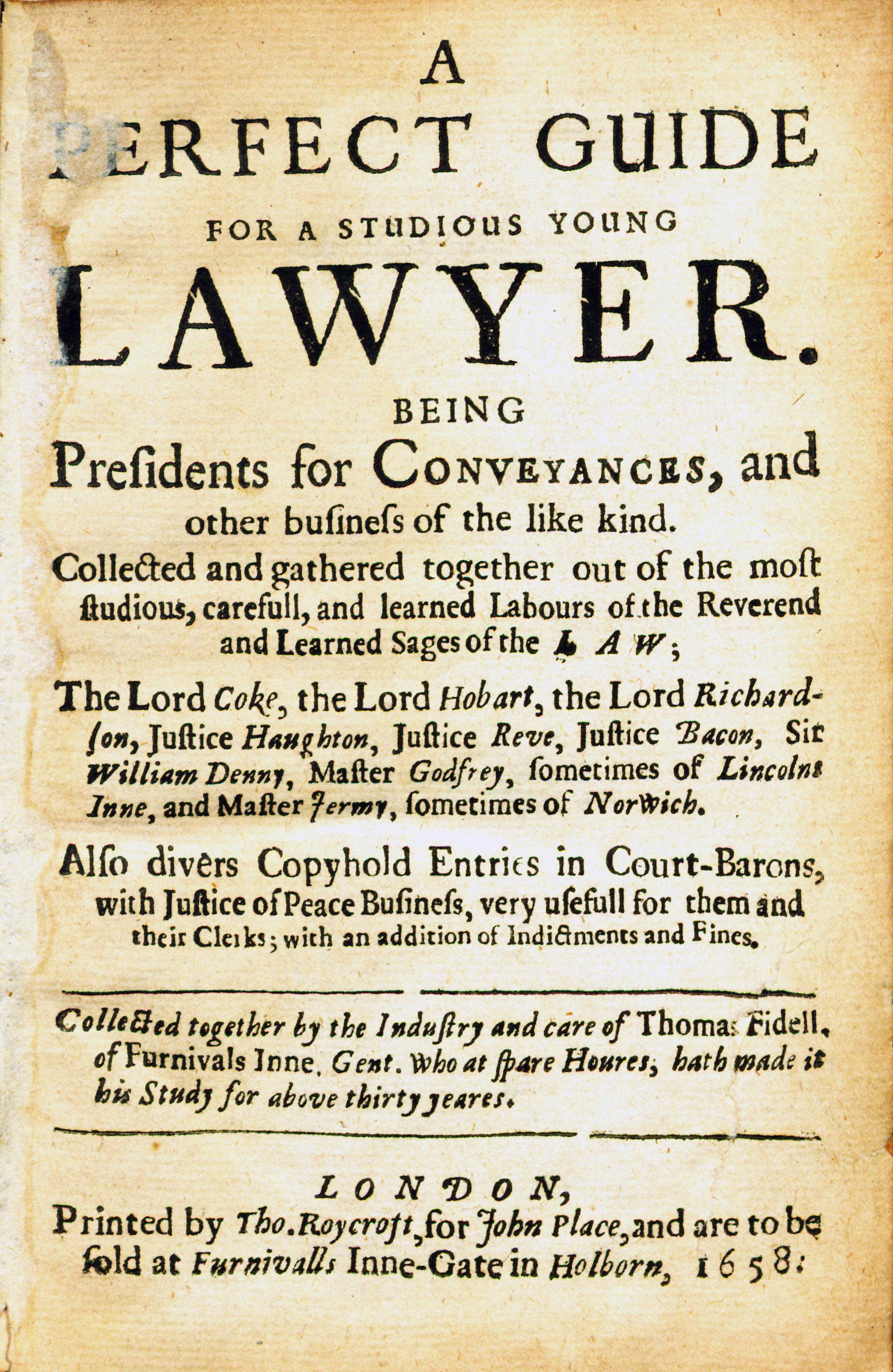
|
Fidell, Thomas. A Perfect Guide for a Studious Young Lawyer, Being Presidents for Conveyances, and other Business of the like Kind. 2nd ed. London: Printed by Tho. Roycroft, for John Place, 1658.
|
|
|
The New Natura Brevium (1652)
Sir Anthony Fitzherbert (1470–1538) published his treatise on writs, La Novel Natura Brevium, in law French in 1534. The first English version, translated by William Hughes, followed nearly 20 years later. Of a practical nature, and indebted to the Old Natura Brevium, Fitzherbert's work provides basic statements regarding the rules and structure of the law, but little insight into the reasoning behind them. Nevertheless, luminaries such as Sir Edward Coke (1552–1634) and Sir Matthew Hale (1609–1676) regarded the book highly and at least eighteen editions were published between 1534 and 1794.
|
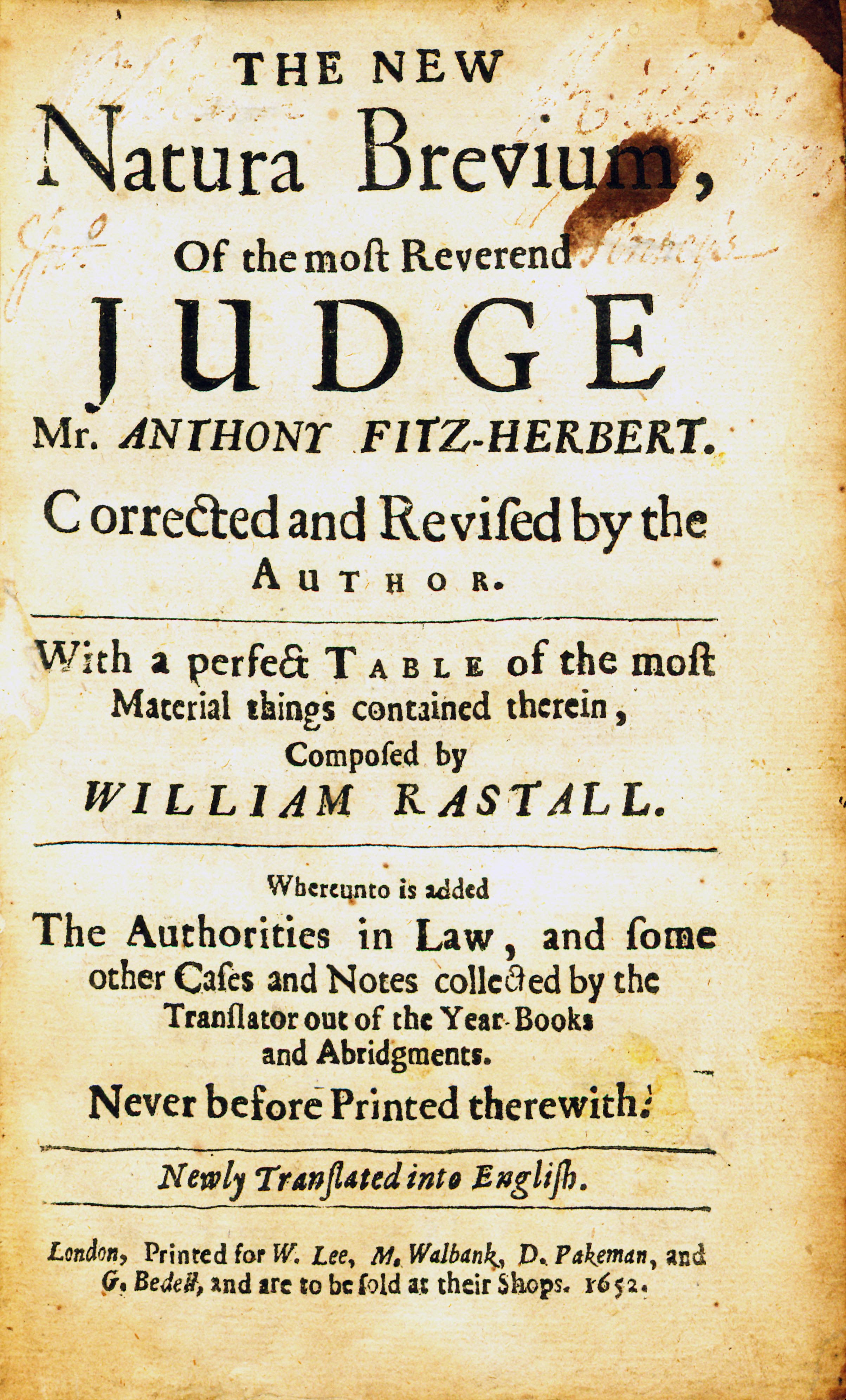
|
Fitzherbert, Sir Anthony. The New Natura Brevium of the Most Reverend Judge Mr. Anthony Fitz-Herbert. 1st English ed. London: Printed for W. Lee, M. Walbank; D. Pakeman, G. Bedell, 1652.
|
|
|
Choice Presidents upon all Acts of Parliament (1685)
In this manual, compiled from his legal notes after his death, Richard Kilburne (1605–1678) presents the practical knowledge gained from his service as a justice of the peace and chancery court solicitor. Although a great admirer of William Lambarde (1536–1601) and the Eireanarcha, Kilburne's Choice Presidents follows the alphabetical arrangement of topics developed by authors such as Michael Dalton (1564–1644). Despite the number of justice of the peace manuals available in the late seventeenth century, Kilburne's work proved popular enough to warrant eight editions between 1680 and 1715.
|
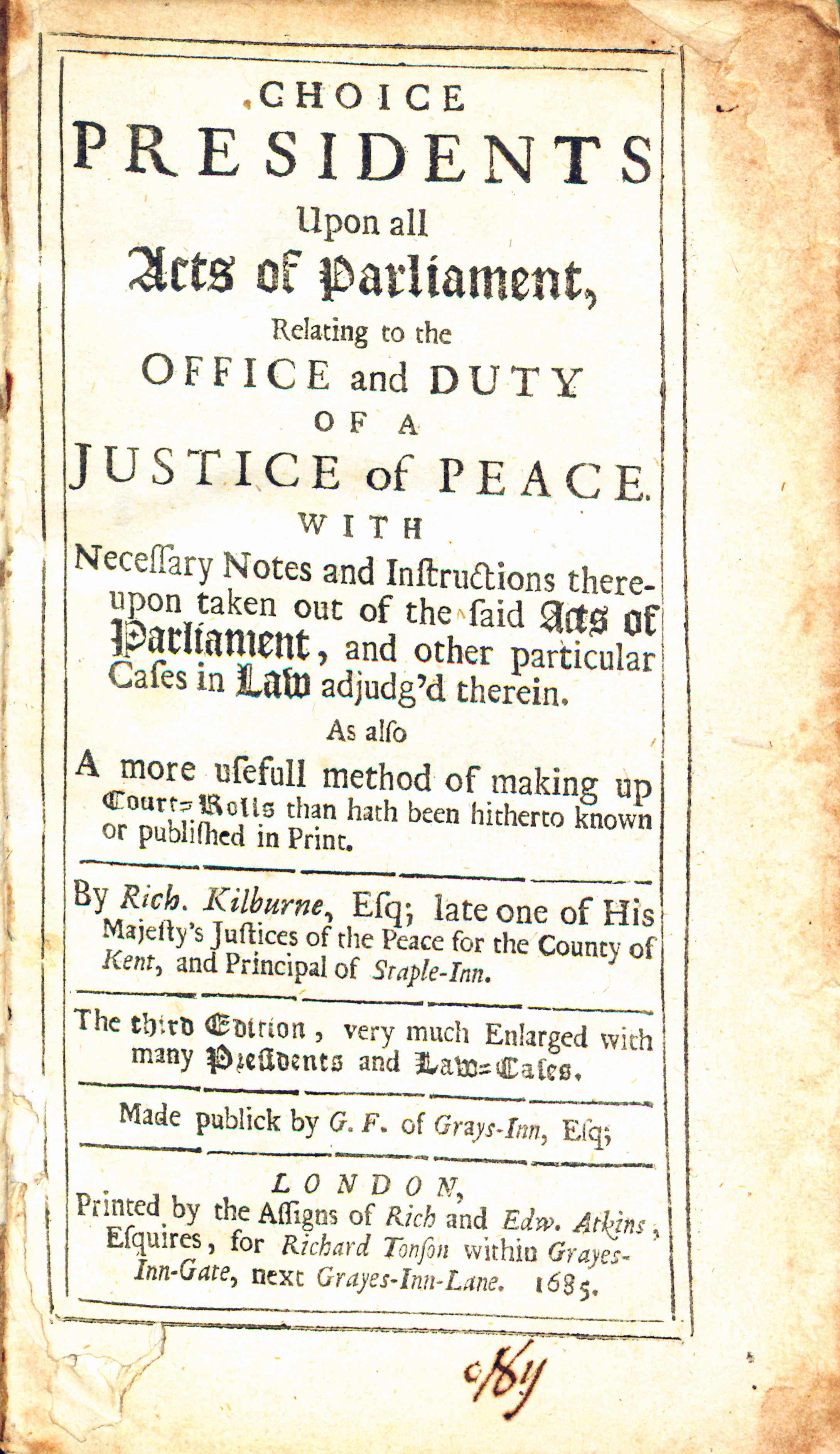
|
Kilburne, Richard. Choice Presidents upon all Acts of Parliament, Relating to the Office and Duty of a Justice of Peace with Necessary Notes and Instructions Thereupon taken out of the Said Acts of Parliament, and other Particular Cases in Law Adjudg'd Therin. 3rd ed. London: Printed by the Assigns of Rich. and Edw. Atkins 1685.
|
|
|
A Collection of Entries (1670)
William Rastell (1508–1565) originally published his Collection of Entries in 1564 and it immediately superseded previously published works of this type. Not only did he include a greater number of precedents and forms from a variety of excellent sources, he also arranged them alphabetically under headings for ease of use. These innovations influenced multiple books on precedents that followed in the seventeenth century.
|
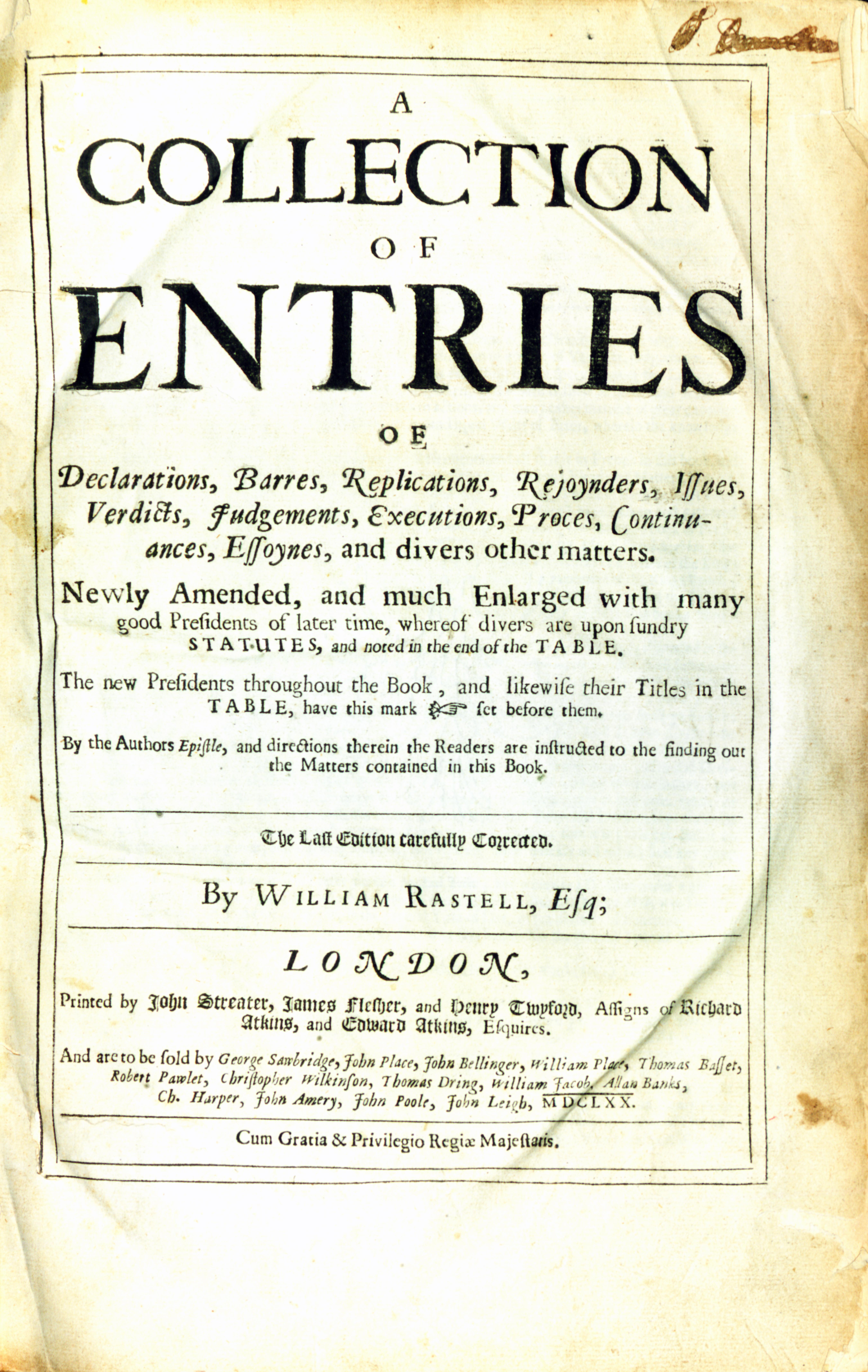
|
Rastell, William. A Collection of Entries of Declarations, Barres, Replications, Rejoynders, Issues, Verdicts, Judgements, Executions, Proces, Continuances, Essoynes, and Divers Other Matters. 4th ed. London: Printed by John Streater, James Flesher, Henry Twyford, Assigns of Richard Atkins, and Edward Atkins, 1670.
|